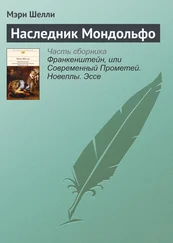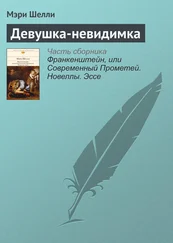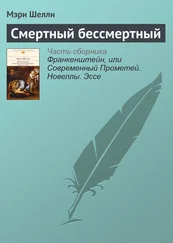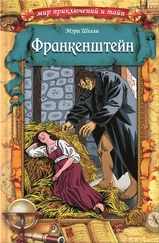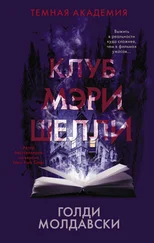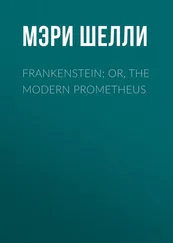Мэри Шелли - Mathilda
Здесь есть возможность читать онлайн «Мэри Шелли - Mathilda» — ознакомительный отрывок электронной книги совершенно бесплатно, а после прочтения отрывка купить полную версию. В некоторых случаях можно слушать аудио, скачать через торрент в формате fb2 и присутствует краткое содержание. Жанр: literature_19, foreign_antique, foreign_prose, на английском языке. Описание произведения, (предисловие) а так же отзывы посетителей доступны на портале библиотеки ЛибКат.
- Название:Mathilda
- Автор:
- Жанр:
- Год:неизвестен
- ISBN:нет данных
- Рейтинг книги:3 / 5. Голосов: 1
-
Избранное:Добавить в избранное
- Отзывы:
-
Ваша оценка:
- 60
- 1
- 2
- 3
- 4
- 5
Mathilda: краткое содержание, описание и аннотация
Предлагаем к чтению аннотацию, описание, краткое содержание или предисловие (зависит от того, что написал сам автор книги «Mathilda»). Если вы не нашли необходимую информацию о книге — напишите в комментариях, мы постараемся отыскать её.
Mathilda — читать онлайн ознакомительный отрывок
Ниже представлен текст книги, разбитый по страницам. Система сохранения места последней прочитанной страницы, позволяет с удобством читать онлайн бесплатно книгу «Mathilda», без необходимости каждый раз заново искать на чём Вы остановились. Поставьте закладку, и сможете в любой момент перейти на страницу, на которой закончили чтение.
Интервал:
Закладка:
It was past two o'clock when by a sudden turn I found myself close to the lake near a cove where a little skiff was moored – It was not far from our house and I saw my father and aunt walking on the lawn. I jumped into the boat, and well accustomed to such feats, I pushed it from shore, and exerted all my strength to row swiftly across. As I came, dressed in white, covered only by my tartan rachan , my hair streaming on my shoulders, and shooting across with greater speed that it could be supposed I could give to my boat, my father has often told me that I looked more like a spirit than a human maid. I approached the shore, my father held the boat, I leapt lightly out, and in a moment was in his arms.
And now I began to live. All around me was changed from a dull uniformity to the brightest scene of joy and delight. The happiness I enjoyed in the company of my father far exceeded my sanguine expectations. We were for ever together; and the subjects of our conversations were inexhaustible. He had passed the sixteen years of absence among nations nearly unknown to Europe; he had wandered through Persia, Arabia and the north of India and had penetrated among the habitations of the natives with a freedom permitted to few Europeans. His relations of their manners, his anecdotes and descriptions of scenery whiled away delicious hours, when we were tired of talking of our own plans of future life.
The voice of affection was so new to me that I hung with delight upon his words when he told me what he had felt concerning me during these long years of apparent forgetfulness. "At first" – said he, "I could not bear to think of my poor little girl; but afterwards as grief wore off and hope again revisited me I could only turn to her, and amidst cities and desarts her little fairy form, such as I imagined it, for ever flitted before me. The northern breeze as it refreshed me was sweeter and more balmy for it seemed to carry some of your spirit along with it. I often thought that I would instantly return and take you along with me to some fertile island where we should live at peace for ever. As I returned my fervent hopes were dashed by so many fears; my impatience became in the highest degree painful. I dared not think that the sun should shine and the moon rise not on your living form but on your grave. But, no, it is not so; I have my Mathilda, my consolation, and my hope." —
My father was very little changed from what he described himself to be before his misfortunes. It is intercourse with civilized society; it is the disappointment of cherished hopes, the falsehood of friends, or the perpetual clash of mean passions that changes the heart and damps the ardour of youthful feelings; lonly wanderings in a wild country among people of simple or savage manners may inure the body but will not tame the soul, or extinguish the ardour and freshness of feeling incident to youth. The burning sun of India, and the freedom from all restraint had rather encreased the energy of his character: before he bowed under, now he was impatient of any censure except that of his own mind. He had seen so many customs and witnessed so great a variety of moral creeds that he had been obliged to form an independant one for himself which had no relation to the peculiar notions of any one country: his early prejudices of course influenced his judgement in the formation of his principles, and some raw colledge ideas were strangely mingled with the deepest deductions of his penetrating mind.
The vacuity his heart endured of any deep interest in life during his long absence from his native country had had a singular effect upon his ideas. There was a curious feeling of unreality attached by him to his foreign life in comparison with the years of his youth. All the time he had passed out of England was as a dream, and all the interest of his soul[,] all his affections belonged to events which had happened and persons who had existed sixteen years before. It was strange when you heard him talk to see how he passed over this lapse of time as a night of visions; while the remembrances of his youth standing seperate as they did from his after life had lost none of their vigour. He talked of my Mother as if she had lived but a few weeks before; not that he expressed poignant grief, but his discription of her person, and his relation of all anecdotes connected with her was thus fervent and vivid.
In all this there was a strangeness that attracted and enchanted me. He was, as it were, now awakened from his long, visionary sleep, and he felt some what like one of the seven sleepers, or like Nourjahad, 37 37 Illusion, or the Trances of Nourjahad , a melodrama, was performed at Drury Lane, November 25, 1813. It was anonymous, but it was attributed by some reviewers to Byron, a charge which he indignantly denied. See Byron, Letters and Journals , ed. by Rowland E. Prothero (6 vols. London: Murray, 1902-1904), II, 288.
in that sweet imitation of an eastern tale: Diana was gone; his friends were changed or dead, and now on his awakening I was all that he had to love on earth.
How dear to me were the waters, and mountains, and woods of Loch Lomond now that I had so beloved a companion for my rambles. I visited with my father every delightful spot, either on the islands, or by the side of the tree-sheltered waterfalls; every shady path, or dingle entangled with underwood and fern. My ideas were enlarged by his conversation. I felt as if I were recreated and had about me all the freshness and life of a new being: I was, as it were, transported since his arrival from a narrow spot of earth into a universe boundless to the imagination and the understanding. My life had been before as a pleasing country rill, never destined to leave its native fields, but when its task was fulfilled quietly to be absorbed, and leave no trace. Now it seemed to me to be as a various river flowing through a fertile and lovely lanscape, ever changing and ever beautiful. Alas! I knew not the desart it was about to reach; the rocks that would tear its waters, and the hideous scene that would be reflected in a more distorted manner in its waves. Life was then brilliant; I began to learn to hope and what brings a more bitter despair to the heart than hope destroyed?
Is it not strange 38 38 This paragraph is in F of F – B but not in F of F – A . In the margin of the latter, however, is written: "It was not of the tree of knowledge that I ate for no evil followed – it must be of the tree of life that grows close beside it or – ". Perhaps this was intended to go in the preceding paragraph after "My ideas were enlarged by his conversation." Then, when this paragraph was added, the figure, noticeably changed, was included here.
that grief should quickly follow so divine a happiness? I drank of an enchanted cup but gall was at the bottom of its long drawn sweetness. My heart was full of deep affection, but it was calm from its very depth and fulness. I had no idea that misery could arise from love, and this lesson that all at last must learn was taught me in a manner few are obliged to receive it. I lament now, I must ever lament, those few short months of Paradisaical bliss; I disobeyed no command, I ate no apple, and yet I was ruthlessly driven from it. Alas! my companion did, and I was precipitated in his fall. 39 39 Here the MS of F of F – B breaks off to resume only with the meeting of Mathilda and Woodville.
But I wander from my relation – let woe come at its appointed time; I may at this stage of my story still talk of happiness.
Three months passed away in this delightful intercourse, when my aunt fell ill. I passed a whole month in her chamber nursing her, but her disease was mortal and she died, leaving me for some time inconsolable, Death is so dreadful to the living; 40 40 At the end of the story (p. 79) Mathilda says, "Death is too terrible an object for the living." Mary was thinking of the deaths of her two children.
the chains of habit are so strong even when affection does not link them that the heart must be agonized when they break. But my father was beside me to console me and to drive away bitter memories by bright hopes: methought that it was sweet to grieve that he might dry my tears.
Интервал:
Закладка:
Похожие книги на «Mathilda»
Представляем Вашему вниманию похожие книги на «Mathilda» списком для выбора. Мы отобрали схожую по названию и смыслу литературу в надежде предоставить читателям больше вариантов отыскать новые, интересные, ещё непрочитанные произведения.
Обсуждение, отзывы о книге «Mathilda» и просто собственные мнения читателей. Оставьте ваши комментарии, напишите, что Вы думаете о произведении, его смысле или главных героях. Укажите что конкретно понравилось, а что нет, и почему Вы так считаете.



